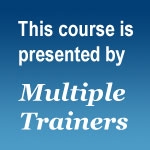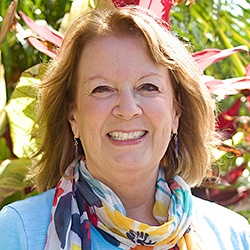

Search Results: work
-
I’ve been part of a fitness group here in California for the past 1.5 years. It’s called Boot Camp, and I have no idea why! Anyway, most people in the class are 25-30 years younger than I am and have been part of this group for several years. I don’t lift weights as heavy as theirs and I can’t always keep up with them, but I had felt confident that I was holding my own (except when jogging, which is the one place where I consistently lag far behind them). I found a way to be okay with this, to enjoy working out with them, without thinking I should be as strong or skilled as they are.
-
Lorraine Aguilar perceives NVC-based listening to be an essential skill to cultivate for success in the business world. A key exercise for building your listening muscle is to work with your judgments of others by translating those judgments from “What’s wrong with them?” to “What's important to me?"
-
Please join us as we remember the work and life of Inbal Kashtan. She offered this parenting Q&A session in NVC Academy's 2013 Parenting Conference.
-
Apply NVC mediation skills in child-related conflicts, for parents, teachers, and others.
-
- Hear from four respected NVC trainers offering heartfelt insights and real-life strategies
- Connect with others seeking compassion, courage, and meaningful action
- Attend as a gift — pay what you can to support NVC Academy
- Discover simple, practical tools to stay grounded, clear, and empowered—no matter what’s happening in the world!
-
Ask the Trainer: Can NVC transform group conflict? Trainer shares stories and answers the question.
-
Ask the Trainer: Guidance for NVC groups on when and how to make requests, especially negative ones.
-
Ask the Trainer: Get guidance on working with enemy images and exercises that bring relief.
-
A 1999 discussion with youth on understanding and working with anger.
-
Trainer Tip: Overwhelmed with all that you want to do? If so, what are you working to change? Is it a behavior or a consciousness? Where were you with this issue when you first decided to create change? And now where are you? Celebrating your progress can encourage you to keep trying. You wouldn’t expect to jump on a treadmill and jog three miles the first time. Don't have the same expectations for your emotional fitness either!
-
Here are five practical ideas for creating simple agreements with a group when conflict arises.
-
Developing interpersonal relationship skills in congregations is integral to working with the conflicts that arise. These skills can be applied to any spiritual community.
-
Listen to John talk about the inner and outer mediation process, the importance of the "3rd chair," and an experience of working with Pakistani elders.
-
We're in difficult times - possibly at the brink of extinction. What can we do in response? Some nonlinear steps: A.) Notice what isn't working; B.) Mourn so that we can move "towards" from an expanded space inside; C.) Analyze to bring a fuller understanding of what's happening and what's needed; D.) Reframe our inner and outer narratives; E.) Discern what we can contribute; F.) Care; and G.) Bring in support for more resilience and creativity.
-
This sheet lists and describes 13 life serving strategies, such as: Time out, disengage, honesty check, and engaging in a working recovery plan. Read on for more.
-
Certified CNVC trainer Roxy Manning, Phd, answers a question: how to create a safe space for a first time group working on power and privileges ?
-
What is empowered speech and how does it link to interdependence? How do you speak in a way that increases the chances of being heard and creates space where individuals are more inclined to listen and act? In this excerpt from the 2021 course, Working Together for Change, Itzel and Kathy explore how to do this by integrating empowered speech, attuned speech, and a commitment to maintaining connections.
-
In parenting, Roxy Manning notes the tendency for self-judgment and external judgment. Roxy suggests that being a single parent or a working parent influences your ability to implement parenting strategies. The importance of assessing the feasibility of strategies in one's current life context is emphasized. Roxy encourages self-compassion and mourning the gap between desired and achievable outcomes. Her message encourages understanding personal constraints and practicing self-compassion in parenting.
-
The Compass – Arnina Kashtan's in-depth transformational process – is specifically designed to support you in reliably deepening your understanding of your own and others' conditioning, and finding ways to reclaim your full connection with yourself.
-
Enjoy listening in as Arnina assists participants in fine tuning what they wish for their futures, and what practices they intend to embrace as the course winds down. She also offers strategies for what they can do if they forget their intended practice, and revisits the importance of untangling Needs from Core Belief.
Quick Links

Stay in Touch!
We value your privacy, won't share your email address and you can easily unsubscribe any time.




















